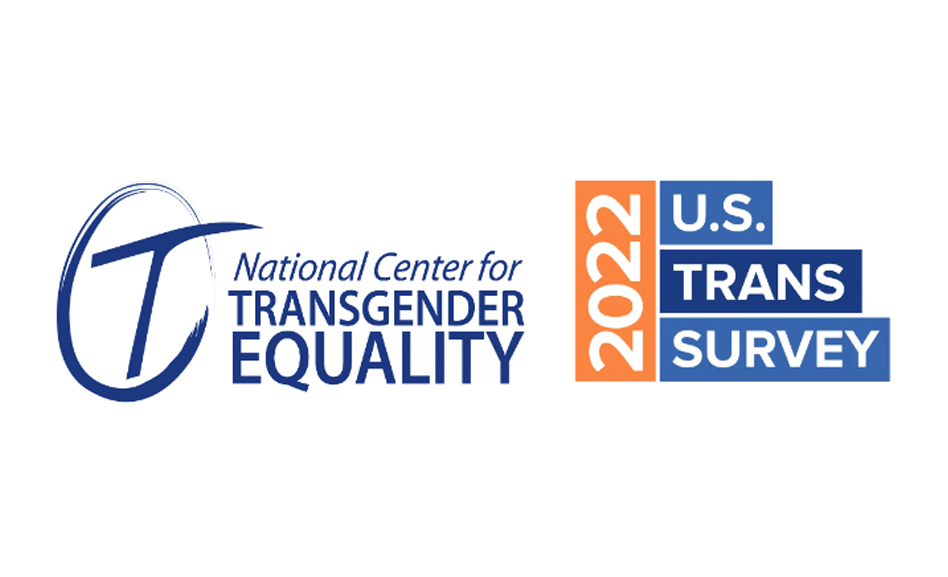
Transgender people are more satisfied with their lives after transitioning, according to the 2022 U.S. Transgender Survey Early Insights report released today (Wednesday, Feb. 7) by the National Center for Transgender Equality. The report “captures the experiences” of 92,329 binary and nonbinary trans people living across the United States and “provides unparalleled insight into what it is like to be a trans person in the country today,” notes a NCTE press release announcing the results.
According to the survey, nearly all — 94 percent — of the respondents who lived at least some of the time in a different gender than the one they were assigned at birth reported that they were either “a lot more satisfied” (79 percent) or “a little more satisfied” (15 percent) with their life.
Respondents also reported substantial family support, with more than two-thirds of trans adults saying that their families were either supportive or highly supportive of their identity and gender expression. The report findings also underscore the positive impact of gender-affirming care on the lives of trans people with nearly all respondents who were receiving hormone treatment or had received at least one form of surgery for their gender transition made them more satisfied with their lives.
But even though trans people overall report being satisfied with their lives and their families, they still continue to face discrimination and mistreatment at work, school and the wider community.
Key findings include:
- More than one in 10 (11 percent) of respondents who had ever held a job said they had been fired, forced to resign, lost the job or been laid off because of their gender identity or expression.
- More than three-quarters of adult respondents (80 percent) and nearly two-thirds of 16- and 17-year-old respondents (60 percent) who were out or perceived as transgender in K-12 experienced one or more forms of mistreatment or negative experience.
- Of those who saw a health care provider within the last 12 months, nearly one-half (48 percent) reported having at least one negative experience because they were transgender, such as being refused health care, being misgendered, having a provider use harsh or abusive language when treating them or having a provider be physically rough or abusive when treating them.
- Most survey respondents reported being denied equal treatment due to their gender identity or being verbally harassed, physically harassed, or harassed online.
Dr. Sandy E. James, co-principal investigator and lead researcher for the 2022 U.S. Transgender Survey, said, “It’s impactful to see so many trans people report life satisfaction when they live according to their gender identity and get the health care they need, but we also see that trans people face substantial barriers to living full, healthy and authentic lives.
“As the most comprehensive source of data about trans people in the U.S., these findings fill an important gap in our knowledge and serve as a critical resource for understanding and addressing the needs of trans people,” James added.
Other key findings show that unequal treatment in all areas of life continues to be a barrier to trans people living full lives, meaning, the press release notes, that “they are surviving when they could be thriving.”
Those findings include:
- More than one-third (34 percent) of respondents were experiencing poverty.
- The unemployment rate among USTS respondents was 18 percent.
- Nearly one-third (30 percent) of respondents had experienced homelessness in their lifetime.
Josie Caballero, director of the U.S. Trans Survey at NCTE, said, “Trans people deserve equal access to the same societal benefits as everyone else — access to good jobs, affordable health care, stable housing and to feel safe in their communities. The Early Insights report highlights how much further the U.S. still needs to go to achieve trans equality.”
Survey results show that widespread discrimination in the places where trans people spend their time is breaking apart families and communities. Nearly half (47 percent) of respondents said they had thought about moving to another state because their state government considered or passed laws that target transgender people for unequal treatment (such as banning access to bathrooms, health care, or sports), and 5 percent had moved out of state because of such state action.
The top 10 states from which respondents moved because of state laws targeting transgender people for unequal treatment are Alabama, Arizona, Florida, Georgia, Missouri, North Carolina, Ohio, Tennessee, Texas and Virginia.
Rodrigo Heng-Lehtinen, executive director of NCTE, added, “Everyone deserves to be treated with dignity and fairness. We need laws at the federal and state level that make sure all people — including trans people — are treated fairly. No one should ever face discrimination in employment, housing, health care, education, and other areas of life just because of who they are. Transgender people are here to stay, and we are proud of who we are.”
The Early Insights report is the first in a series of reports sharing findings from the 2022 U.S. Transgender Survey. The 2022 U.S. Transgender Survey and the Early Insights report follow the highest scientific standards, according to the NCTE press release, which notes that the survey was “conducted by a team of experienced researchers, guided by a scientific advisory council comprised of experts in research about trans populations, and under review of the UCLA Institutional Review Board.”
The 2022 U.S. Transgender Survey had an unprecedented 92,329 respondents from all 50 states, the District of Columbia, American Samoa, Guam, the Northern Mariana Islands, Puerto Rico, the U.S. Virgin Islands, and U.S. military bases overseas. Respondents were aged 16+ and diverse in race/ethnicity, educational attainment and geography. NCTE developed the survey in partnership with the National Black Trans Advocacy Coalition, the TransLatin@ Coalition, and the National Queer Asian Pacific Islander Alliance.
Visit USTransSurvey.org to see the full set of findings published in the report Early Insights: A Report of the 2022 U.S. Transgender Survey.
